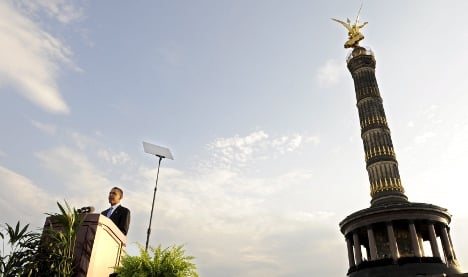The love-affair between Germany and Obama has been a very public one since 2008, when 200,000 people turned up to see him talk in Berlin during the election campaign.
Obama speaks to the basic German attitude of social responsibility within a capitalist market – and crucially in the 2008 election, he was not George W. Bush who was wildly unpopular in Germany by the end of his second presidency.
A recent survey showed 85 percent of Germans would vote for Obama if they had the option, while just four percent told pollsters YouGov they supported Republican challenger Mitt Romney. Twice this share thought he had a good chance of beating Obama though.
Click here to see what Germans told The Local.
Of the 1,051 people asked, 60 percent felt that Obama’s policies were generally positive – perhaps thanks to the new healthcare bill, which made the American medical system more accessible.
His decision to pour money into the country’s auto industry in the wake of the economic crash is something many Germans can support in principle, while his less confrontational attitude to foreign policy is also more in tune with German thinking.
The Local hit the streets in Berlin to get a taste of what Germans had to say about Tuesday’s election, and whether they thought it would affect them. We searched for a German who wanted Romney to win, and found instead just varying levels of enthusiasm for Obama.
One man even told us, “I am hoping that Obama will win. For me it’s about his character. I see him more as a visionary, even though the Americans don’t understand this or try to stand in his way. But I think he’s more visionary for the future.”
The Local/jcw/pmw



 Please whitelist us to continue reading.
Please whitelist us to continue reading.
Member comments